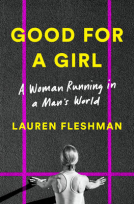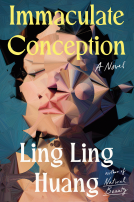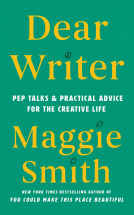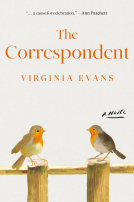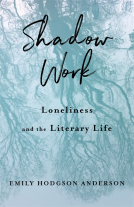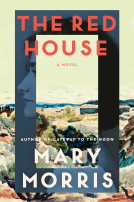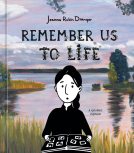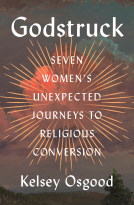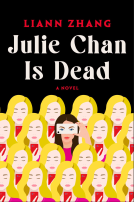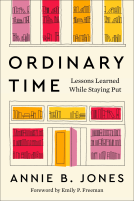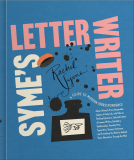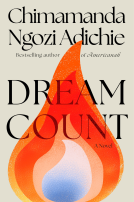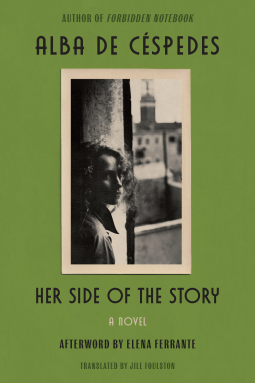
Her Side of the Story
From the author of FORBIDDEN NOTEBOOK
by Alba de Céspedes
This title was previously available on NetGalley and is now archived.
Send NetGalley books directly to your Kindle or Kindle app
1
To read on a Kindle or Kindle app, please add kindle@netgalley.com as an approved email address to receive files in your Amazon account. Click here for step-by-step instructions.
2
Also find your Kindle email address within your Amazon account, and enter it here.
Pub Date Nov 14 2023 | Archive Date Nov 07 2023
Astra Publishing House | Astra House
Talking about this book? Use #HerSideoftheStory #NetGalley. More hashtag tips!
Description
—Elena Lappin, The Washington Post
"De Cespedes' work has lost none of its subversive force”
—The New York Times Book Review
* "De Céspedes’s melancholy testament to a hidden life feels timeless and vital."
—Publishers Weekly (Starred Review)
From the author of Forbidden Notebook, Alba de Céspedes, a richly told novel she called “the story of a great love and of a crime.”
As she looks back on her life, Alessandra Corteggiani recalls her youth during the rise of fascism in Italy, the resistance, and the fall of Mussolini, the lives of the women in her family and her working-class neighborhood, rigorously committed to telling “her side of the story.”
Alessandra witnesses her mother, an aspiring concert pianist, suffer from the inability to escape her oppressive marriage. Later, she is sent away to live with her father's relatives in the country, in the hope she’ll finally learn to submit herself to the patriarchal system and authority. But at the farm, Alessandra grows increasingly rebellious, conscious of the unjust treatment of generations of hardworking women in her family. When she refuses the marriage proposal from a neighboring farmer, she is sent back to Rome to tend to her ailing father.
In Rome, Alessandra meets Francesco, a charismatic anti-fascist professor, who ostensibly admires and supports her sense of independence and justice. But she soon comes to recognize that even as she respects Francesco and is keen to participate in his struggle to reclaim their country from fascism, this respect is unrequited, and that her own beloved husband is ensnared by patriarchal conventions when it comes to their relationship.
In these pages, De Céspedes delivers a breathtakingly accurate and timeless portrayal of the complexity of the female condition against the dramatic backdrop of WWII and the partisan uprising in Italy.
Available Editions
| EDITION | Other Format |
| ISBN | 9781662601439 |
| PRICE | $29.00 (USD) |
| PAGES | 512 |
Available on NetGalley
Featured Reviews
this is a fascinating book. i had never read de céspedes before, but i will definitely check her out now that i have gotten acquainted with her beautiful prose. her reflections on womanhood, sexism & the way fascism is interwoven with misogyny are truly fascinating, even more so when one realizes her books were written a while ago. a fantastic discovery!
 Reviewer 1134790
Reviewer 1134790
I had heard of Alba de Cespedes because she was an author who inspired Elena Ferrante, and because her work is now getting rediscovered internationally and translated into several languages. So when I saw that the arc for Her Side of the Story was available on NetGalley, I jumped at the opportunity to read it.
The book is more of a psychological study told from the perspective of a woman named Alessandra, as she recounts her childhood and young adult years, living mostly in Rome before and during WWII. There is a portion set in the countryside as well which I thought was the strongest point of the book.
The novel is centered around her experiences as a young woman, as well as the friendships and relationships Alessandra develops throughout her life. There is a lot of emphasis on her relationship to her mother, which drives much of the narrative and characterization, as well as her friendship with Fulvia (her neighbor's daughter) and Alessandra's subsequent marriage. There are numerous other relationships depicted, all written in a profound and earnest manner.
Overall I really enjoyed this book and the writing (the translation was excellent), though I did find it dragged in certain portions (it's a long book, even though the language is very accessible). The ending was shocking and impactful, through quite abrupt after some sluggish portions in the second half.
I would definitely recommend this novel. There are certain aspects of the book that are reminiscent of My Brilliant Friend (though Her Side of the Story preceded it), as well as The Bell Jar and Madame Bovary. I think fans of these three books will really enjoy "Her Side of the Story", as well as the 'sad girl book' girlies and anyone who is interested in complex portrayals of flawed female characters.
 Reviewer 205760
Reviewer 205760
Every Alba de Céspedes novel is a world unto itself, and nothing is more vivid, more real, more alive than the women at the center of her novels. In Her Side of the Story we have Alessandra, a protagonist who, remarkably, is named after the three-year-old brother who drowned before she was born: "His name was Alessandro, and when I was born, a few months after his death, I was burdened with the name Alessandra in order to perpetuate his memory." It is only the first page of the novel, and already de Céspedes is laying out the groundwork of her extraordinarily complex and inimitable narrator.
Her Side of the Story is a 500-page novel, and it is every inch Alessandra's book. The title of the novel promises her side of the story, and that is indeed exactly what it gives us. In de Céspedes's hands, though, that "side of the story" is more than just a just a simple recounting of events: instead, the narrative feels like a kind of living document, animated by Alessandra's love, her anguish, her frustrations, her musings, her memories. What she includes in this document, what she devotes the time and space to describe and reflect on, reveals to us what she deems important--not just important in general, but important to her in particular: to her understanding of herself and her actions, and to her project of writing this narrative.
There is so much that I can talk about when it comes to Alessandra's/the novel's--the two are so intertwined that to speak of one is to speak of the other--narrative interests. What stands out most to me, though, is the way that de Céspedes renders everyday life. In Her Side of the Story, de Céspedes does not transform everyday life so much as she is able to see the transformations (personal and political) inherent in it. The act of ironing a shirt, taking a walk, looking out a window, picking up groceries--in Alessandra's narration these everyday moments become remarkable, sites of tension, tranquility, intimacy, introspection. More broadly, de Céspedes has such a talent for capturing the rhythms of everyday life, the way it is both monotonous and monumental, exhausting and exhilarating; the beauty and the dejection in it, the way it grinds people down, and yet still offers them pockets of space to linger in its richness. I say "people," but Her Side of the Story is very specifically invested in the everyday lives of women: it's a novel that is always attuned to the lives that women lead, to the routines that govern their days and the constant labour that underlies those routines.
Her Side of the Story is a novel that pays attention to the everyday, and it is precisely because of this that it is also a political and philosophical novel, feminist in its approach to both. There are these two words that recur throughout the narrative, often together: "love" and "happy." In those two words is the crux of what the novel is trying to explore: the role that romantic love plays in women's lives, and the way that love can be so easily figured as the key to their happiness. The novel sees love as fundamentally valuable and necessary to women's lives, and yet also tenuous and dangerous, destabilizing: how can women relate to love when love, for them, so often becomes subsumed into marriage, an institution founded not on love but on patriarchal gender roles and their attendant hierarchies? What does a "happy" life look like if you're a poor woman in mid-1900s Italy, and to what extent can marriage be part of that life? These are themes and questions that play out through Alessandra herself, but also through the various other women in her life: her mother, her grandmother, her neighbour, her friend.
Add to all of this the fact that a large part of the story takes place during WWII and it starts to look like the novel is taking on a lot--and it is, to be sure, but it absolutely lives up to its ambitions. What I'm trying to articulate about Her Side of the Story, and what I think makes it so effective, is that it is a narrative that is always able to seamlessly dilate and constrict its focus: finding the micro in the macro, and the macro in the micro. It's about war, and it's about getting the groceries. It's about anti-fascist resistance, and it's about going to sleep next to your husband every night.
My focus so far has been conceptual--and Her Side of the Story is an incredibly intelligent and astute novel--but in fact nothing in this novel is ever merely conceptual. That is, if the book works conceptually, it is only because it works emotionally. It's a deeply poignant, devastating novel because de Céspedes shows you how these concepts--love, happiness, marriage, war--manifest in her protagonist's life. It's a devastating novel because it is not just love or marriage that we're talking about, but Alessandra's love, Alessandra's marriage, her life, her joy, her pain. There is no divorcing anything in the novel from Alessandra's subjectivity, and de Céspedes draws her with such authenticity and compassion that you are always alive to her emotions, sensitive to their every shade.
All of this is to say: Her Side of the Story moved me. I read it over the course of 9 days, and for those 9 days, I was with Alessandra every step of the way. I was deeply invested in her life, I experienced every emotion alongside her, and when her story was over, I genuinely felt bereft. (I especially adored the first section of the novel, which details Alessandra's early life with her mother, and which de Céspedes writes in such an achingly beautiful way.) I read this novel so carefully, too: de Céspedes's nuanced writing asks that you pay attention, and I unreservedly gave her my full attention. (I reread so many parts of this novel that I'm convinced I just read the whole thing twice over.) Altogether, Her Side of the Story was not just a brilliant novel, but one that gave me such a special and memorable reading experience. It moved me, it stunned me, it devastated me, it made me cry. I've written so much about it in this review already, and yet I haven't even come close to conveying its startling complexity and richness. Read it, then you'll know.
Thanks so much to Astra House for the eARC!
A fascinating book originally written in Italian in 1938. I really enjoyed reading about Alessandra narrating about her relationship with her mother, and the latter's influence and impact in her life. Thought provoking, this narration leads the reader to reflect about this influence as well as make his/her own mind about Alessandra's actual psychological development... Another essential theme of this novel concerns relationships between women, and their dynamics which I particularly found interesting. Some parts of this book did feel a bit too long, but it's definitely worth reading!
I received a complimentary ARC of this novel from NetGalley and I am leaving voluntarily an honest review.
 Mandy J, Reviewer
Mandy J, Reviewer
Alba de Cespedes (1911-1997) was an acclaimed Italian-Cuban writer and journalist, who took an active part in the Italian partisan struggle and was twice jailed for her anti-fascist activities. She is considered one of Italy’s most important novelists. This novel, set in Italy against the rise of fascism in Italy and the rise and fall of Mussolini, was originally published in 1938, but its relevance is timeless and for all times. Although set in a particular time and place, it has a universal application that transcends the particular. It’s a coming-of-age story, but to call it such is too simplistic and limiting a description as it is so much more, the complex psychological exploration of a young woman growing up in a patriarchal society where old attitudes die hard. Politics play a big part in the novel but it’s not necessary to understand all the complexities, as it’s very much about any society in reaction against repressive policies. Alessandra meets Francesco who seems to be on the same wave-length as her and she hopes through him to develop her own expectations for a more equal society. But Francesco is as trapped as she is in the status quo, and the relationship between them becomes more and more fractured. The novel has lost none of its power or resonance and I found it a compelling narrative. It’s a long novel but never flagged for me. I was totally invested in Alessandra’s life and felt deeply for her. Although the book is definitely a feminist polemic it is not didactic or hectoring, but a very human story of women trapped by societal conventions. A great read.
 Librarian 875611
Librarian 875611
Thank you to NetGalley, the publisher, and the author for giving me a free eARC of this book to read in exchange for my review!
Alessandra is an Italian woman coming of age during the 1930s, an objectively difficult time for any young person in Europe. Watching her mother struggle with complex romantic relationships makes Alessandra wary of marriage in general, as she doesn't want to lose herself in a man — she wants more for herself than to be just a housewife and caretaker. Refusing to give up her studies even when she is sent away to the countryside, Alessandra attains her degree and heads back to Rome to care for her father. She meets a magnetic professor who has strong political opinions, and she feels that this man is the one for her, the one who will respect her independence and her longing for a fulfilling life. But will that feeling last? Does Francesco truly see Alessandra as the capable, intelligent woman she is? And what will happen to them as the war around them rages on?
Oh, this is a beautiful book. Originally published in Italian in 1949, Alba de Céspedes writes her female characters in such a realistic, breathtaking way — it is a style that reminds me of Simone de Beauvoir in its potency and candor. I saved so many quotes from this book, and all of them are laden with such intensity of emotion! I loved Her Side of the Story, and it's definitely a book I will return to in the future.
This is a rather long read, in comparison to modern fiction, but I never found myself bored. Even the more mundane, everyday details of Alessandra's life are rendered in a way that makes you want to hear them all, see her live every moment. Though much of the story is rather straightforward, there are a few moments that had me on the edge of my seat, and one that absolutely blew my mind. In retrospect, I should have seen it coming, but I was so wrapped up in everything else going on!
I always struggle to write concisely about books I love on a deep level (cue Mr. Knightley's, "if I loved you less, I might be able to talk about it more") so I'll stop here and just tell you that this is a gorgeous, sweeping saga of womanhood and relationships in a tumultuous period of history. I personally loved that while this is WWII fiction, the focus is not on the war activities, but rather on the internal struggles of a single woman and how her life is impacted by those around her.
And that ending!!!!!
Huge thank you to Alba de Céspedes for writing, Jill Foulston for translating, and Astra House and NetGalley for sharing an early digital copy with me.
 Abby S, Reviewer
Abby S, Reviewer
Alba de Cespedes is an extraordinary writer,she bring us into her world her life and relationships and makes them come alive.This was an engrossing novel a story that stays with the reader.#netgalley #astrahouse
I loved this complex book. Set in Italy, this novel follows Alessandra since her childhood describing in depth the relationship she had with her mother before she dies. I enjoyed the story of how she grew up and became an intelligent young woman who prioritized her intellectual endeavours above marriage. Eventually she falls in love, at the end she's only human. I hated watching her suffer after her husband's mindlessness, after we witnessed how independent and focused on her studies she was. The war changed everything, so she had to sacrifice a lot.
I usually don't like translations, since not always flows correctly and the writing is rather bumpy, but this book wasn't the case. I enjoyed it very much, but I wouldn't be a trusty opinion since I don't speak Italian. I think it was a great idea to translate Alba de Cespedes' works so more readers get to know her. I'm looking forward to read more of her. Overall, an enjoyable read. Feminist, yet a bit heartbreaking.
I wrote a full review at The Chicago Review of Books: https://chireviewofbooks.com/2023/11/24/the-prescience-of-alba-de-cespedess-her-side-of-the-story/
In this evocative novel, Alessandra Corteggiani reflects on her tumultuous youth amidst fascist Italy, revealing a life marked by resistance—not only against political oppression but against the rigid patriarchy within her family and society. As Alessandra watches her mother stifled by an oppressive marriage, she vows to break free, later rebelling against societal expectations by rejecting an arranged marriage. When she joins her husband Francesco in the anti-fascist resistance, she realizes even he is trapped by traditional views of women. De Céspedes crafts a powerful, timeless portrait of a woman’s struggle for autonomy and identity against the sweeping backdrop of WWII Italy, making this a moving exploration of resilience and rebellion.
Readers who liked this book also liked:
Ling Ling Huang
General Fiction (Adult), Humor & Satire, Multicultural Interest
Joanna Rubin Dranger
Biographies & Memoirs, Comics, Graphic Novels, Manga, History

